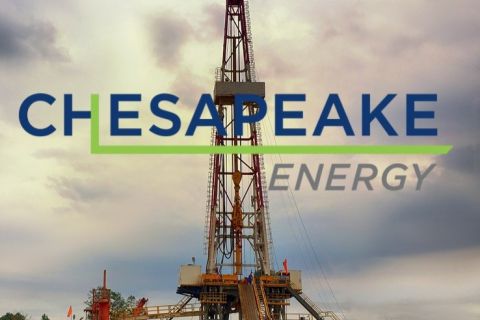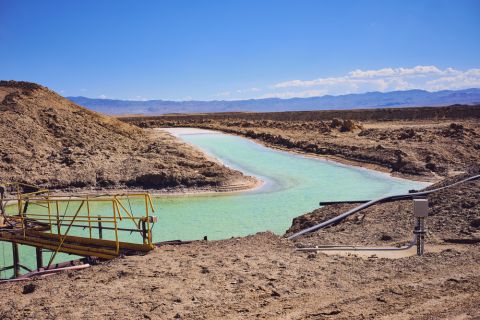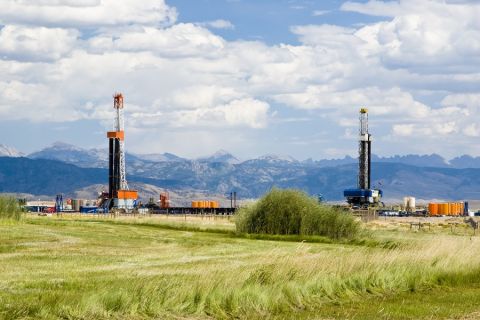
(Source: Shutterstock, HartEnergy.com)
Today’s infrastructure workforce is aging and in need of repair and replacement. Not just to backfill jobs as many retire, but to also provide the critical knowledge transfer from the highly trained and deeply experienced employees to the new workforce.
Finding and providing these qualified workers is becoming more and more difficult, bringing great risk to employers. The U.S. Bureau of Labor Statistics reports that more than 6 million jobs are currently unfilled, with skilled-labor jobs taking the biggest hit. Not having enough employees and/or quality employees can pose a safety risk in the workplace.
One reason for the qualified-worker shortage is the difference in culture and society between age groups. Operating, maintaining and building energy infrastructure is physically demanding work that requires long hours.
Nonstop
Often, there is little to no environment for a work-life-balance culture, simply because the energy industry never stops. Because of this, the younger generation has a reduced interest in hard skill sets, such as the trades, and lack the soft skills needed to effectively communicate during critical problem-solving exercises.
Another cause was the tremendous loss of qualified workers the energy sector saw during the economic downturn of the 1980s.
As a result, today we see a large age gap of approximately 12 to 15 years between employees in the field. This is more than a decade of lost years where replacements could have been mentored and groomed to meet tomorrow’s energy needs.
Preparing to replace an aging workforce involves construction and maintenance practices often not learned in degreed programs. Generations of pipeliners have learned successful approaches in the field solely through experience.
Their practices and tricks of the trade are skills you simply cannot learn in a textbook. Textbooks cannot predict weather, equipment failures, external threats, and the tics and tocks of operating equipment that one learns from being around it.
Trying to learn these skills without the experience from those now retired—or close to retiring—has delayed projects, increased costs and affected the integrity of systems. Some companies saw this in the early 2000s and proactively planned for this by heavily investing in mentor/mentee programs.
‘Work Smart’
A well-planned mentorship program reaps tremendous benefits if maintained well and properly managed. Education itself is important, but pairing it with field knowledge as professionals grow is priceless. As TV personality Mike Rowe once said, “Work smart and hard.”
Why is this so important in today’s training for energy infrastructure? It’s the fastest way to build an employee’s skillset and take advantage of the opportunity to improve the next generation of energy workers.
The U.S. has experienced monumental achievements with Roosevelt’s New Deal, drilling advancements to reach more fossil fuels and development of new material that are stronger than ever before. But we have also failed in areas where the rapid growth of North American energy independence has weakened the quality of workers due to lack of time for training.
When companies invest in mentorship programs, they invest in the integrity of their infrastructure and the security of their assets. It may be the single-most important investment a company makes.
These programs offer an opportunity for a younger worker to be paired with a veteran energy professional and learn from the veteran’s failures and successes throughout decades of service to a given energy sector.
Mentoring new employees introduces them to older infrastructure and proven methods to recognize and troubleshoot problems that may need addressing if, for example, a Supervisory Control Data Acquisition System (SCADA) fails and power is lost. People don’t realize that, during a bad storm or a catastrophic equipment failure, there is a worker out there in the elements manually operating valves, reconnecting switches and starting turbines on backup power to maintain the comforts society has collectively grown to rely on.
These efforts take skills that mentorship programs help answer.
Companies have different approaches to addressing mentorship programs, but the most important aspect to their success is timing. A new employee should be paired with a veteran worker between two and four years before that worker is scheduled to retire.
Feedback from the field and personal experience has shown that decades of learned skills cannot be transferred and learned in a matter of months. Invest in the time for a good overlap and tradeoff and it will pay dividends to the safe operations of energy infrastructures across North America.
Skill Verification, Expectations
Today, midstream electrical and pipeline maintenance and construction rely on inspectors to oversee the quality of the work being done. They carry certifications through organizations that have difficultly verifying one’s technical background to justify granting a certificate. These oversights have produced inspectors that are highly unqualified to assess the work.
When researching companies that offer inspection services, it’s typical to see a “hiring for XYZ inceptor.” As long as the candidate holds the certification, they’ll likely qualify to be hired with little to no knowledge of the skills required to correctly perform the job.
While certifications and education are important, technical background and attitude are even more critical. If having the technical skills, what good are they if lacking communication skills to help the cause?
Atlas Field Services LLC (AFS) vets, interviews and screens safety employees through multiple veteran linemen and pipeliners to assess the actual skills many applicants claim to have. New employees are paired with a subject-matter expert in the field to assure competency and to also soften the edges if needed.
The mentor/mentee program has fostered an environment for innovative security-vulnerability assessments, pipeline construction-risk assessments in difficult country and ground patrols that have identified areas of improvement for clients at a cost efficient operation for long-term returns on safe operations.
Midstream’s Need
Advancement in unconventional-resource drilling in this century has resulted in the need to get more hydrocarbons into midstream systems for distribution markets. This demand for new, large, interstate projects led to an industry boom. This boom came at a time with a reduced number of trained field professionals and little time to start training a new generation.
This resulted in a decade of new professionals with resumes that reflected more experience than a 40-year veteran. Most of these candidates failed the field-assessment test when it came to boots on the ground and the request to explain processes described in their resume.
The new-age professionals that come with a willingness to learn, a fair resume and an interest to grow are the ones to invest in. It is essential to identify those individuals in an industry that has been flooded with inexperience in the past decade.
Taking more time to comb through qualified candidates and separate fact from wording on resumes will produce quality new hires. Time dedicated to building a quality program for a group of elite young professionals that want to learn is the best investment a company can make for its future.
Training directly affects the safety and security of energy infrastructure across North America. AFS is investing in the integrity and economic strength of electrical and pipeline systems by recognizing the importance of comprehensive mentor/mentee programs to overlap field experience and blend the best practices of generations that each bring something to the table.
No matter where the energy field goes, one thing is a guarantee: You’ll always need hands-on mechanics paired with technological developments to address the safety and security of the U.S.’ critical energy infrastructure. The old fundamentals of field applications are just as important as the latest SCADA developments to streamline efficient operations.
Perhaps the greatest mistake is to forget about that as technology advances forward at lightning speed.
Justin Maloney is a regional field manager for Atlas Field Services LLC.
Recommended Reading
Chesapeake Slashing Drilling Activity, Output Amid Low NatGas Prices
2024-02-20 - With natural gas markets still oversupplied and commodity prices low, gas producer Chesapeake Energy plans to start cutting rigs and frac crews in March.
Sunoco’s $7B Acquisition of NuStar Evades Further FTC Scrutiny
2024-04-09 - The waiting period under the Hart-Scott-Rodino Antitrust Improvements Act for Sunoco’s pending acquisition of NuStar Energy has expired, bringing the deal one step closer to completion.
Kimmeridge Fast Forwards on SilverBow with Takeover Bid
2024-03-13 - Investment firm Kimmeridge Energy Management, which first asked for additional SilverBow Resources board seats, has followed up with a buyout offer. A deal would make a nearly 1 Bcfe/d Eagle Ford pureplay.
M4E Lithium Closes Funding for Brazilian Lithium Exploration
2024-03-15 - M4E’s financing package includes an equity investment, a royalty purchase and an option for a strategic offtake agreement.
E&P Earnings Season Proves Up Stronger Efficiencies, Profits
2024-04-04 - The 2024 outlook for E&Ps largely surprises to the upside with conservative budgets and steady volumes.





